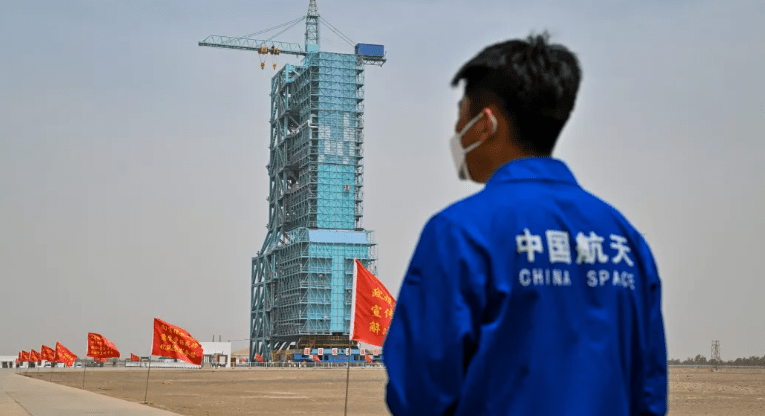China is getting ready to launch its first civilian astronaut into space.
As part of a crewed mission to the Tiangong space station on Tuesday, China will launch its first civilian astronaut as part of the country’s ambitious aspirations for a human lunar landing by 2030. The second-largest economy in the world has poured billions of dollars into its military-run space program in an effort to overtake the United States and Russia after years of lagging behind.
All Chinese astronauts sent into space up to this point have been PLA members.
The mission’s scientific investigations would be overseen by Gui Haichao, a professor at Beijing’s Beihang University, said Lin Xiqiang, a spokesman for the China Manned Space Agency (CMSA).
According to Lin, the goal of his mission is to conduct “large-scale, in-orbit experiments… in the study of novel quantum phenomena, high-precision space time-frequency systems, the verification of general relativity, and the origin of life.”
Gui said during a news briefing on Monday, “I’ve always had this desire.
His college said that he was from a “ordinary family” in the Yunnan region in the southwest.
According to an institution post on social media, he “first felt the attraction of aerospace” while listening to campus radio news on Yang Liwei, China’s first space traveler, in 2003. Independent analyst Chen Lan told AFP that Gui’s presence is “particularly significant” considering that earlier flights included just pilot-trained astronauts who were in charge of more technical duties rather than specialized scientists.
It implies that starting with this mission, China will allow regular people access to space.
Tuesday at 9:31 AM (0131 GMT), Gui is scheduled to launch on the Shenzhou-16 spacecraft from the Jiuquan Satellite Launch Centre in northwest China, according to the CMSA.
According to official media, the commander, Jing Haipeng, is on his fourth space trip. Engineer Zhu Yangzhu makes up the third crew member.
Jing said he hadn’t seen his family in over four years because of concern that doing so may interfere with his training.
At a news conference on Monday, he said, “As astronauts heading into space… our fundamental obligation and goal is aiming for glory for our nation.
The three will spend almost five months in Earth’s orbit. Plans for China’s “space dream” have accelerated under President Xi Jinping.
Beijing intends to establish a base on the Moon, and CMSA spokeswoman Lin reiterated Beijing’s intention to send a human expedition there by 2030 on Monday.
The overarching objective, according to him, is to conduct lunar scientific exploration and associated technical tests by 2030, along with China’s first human lunar landing. Last year, the T-shaped Tiangong, whose name translates to “heavenly palace,” successfully docked with the main body.
According to Chinese news agency Xinhua, the station is equipped with a variety of cutting-edge scientific tools, including “the first space-based cold atomic clock system in the world.”
For at least 10 years, the Tiangong is anticipated to stay in low Earth orbit at a distance of 400 to 450 kilometers (250 to 280 miles) from the globe.
It is continuously manned by three-astronaut teams that rotate.
Beijing has said that it is open to foreign collaboration even though China does not want to deploy Tiangong for international cooperation on the same scale as the International Space Station.
China “is looking forward to and welcomes the participation of foreign astronauts in the country’s space station flight missions,” Lin said on Monday.
Since 2011, when the US forbade NASA from cooperating with China, China has been essentially shut out of the International Space Station.













